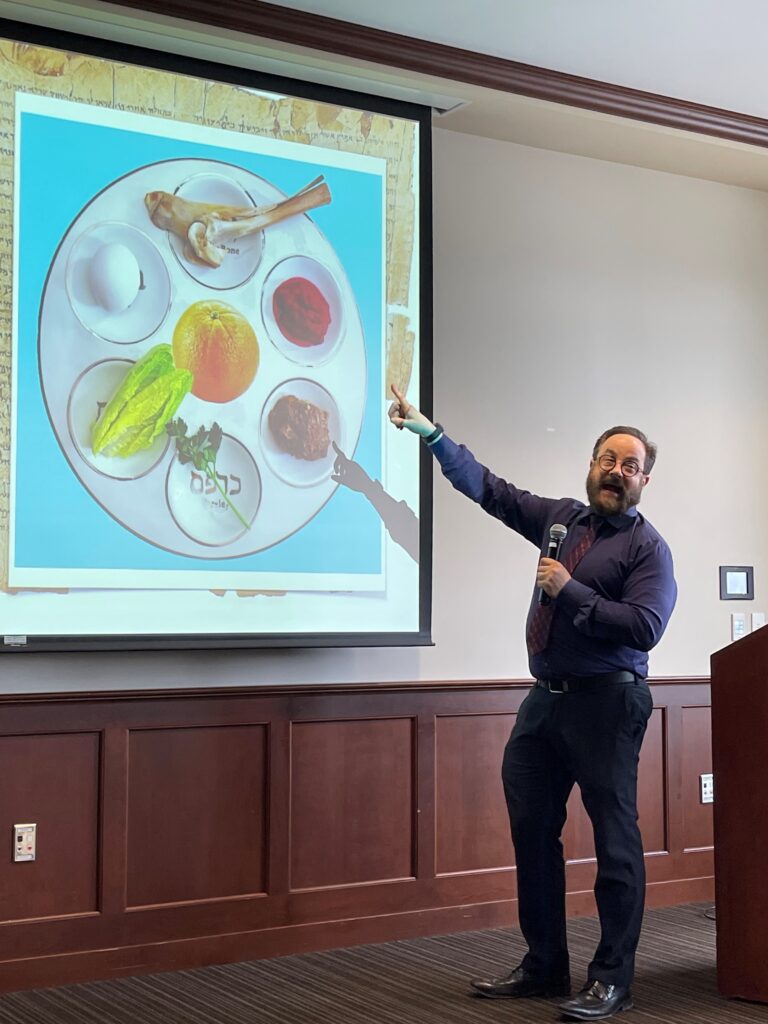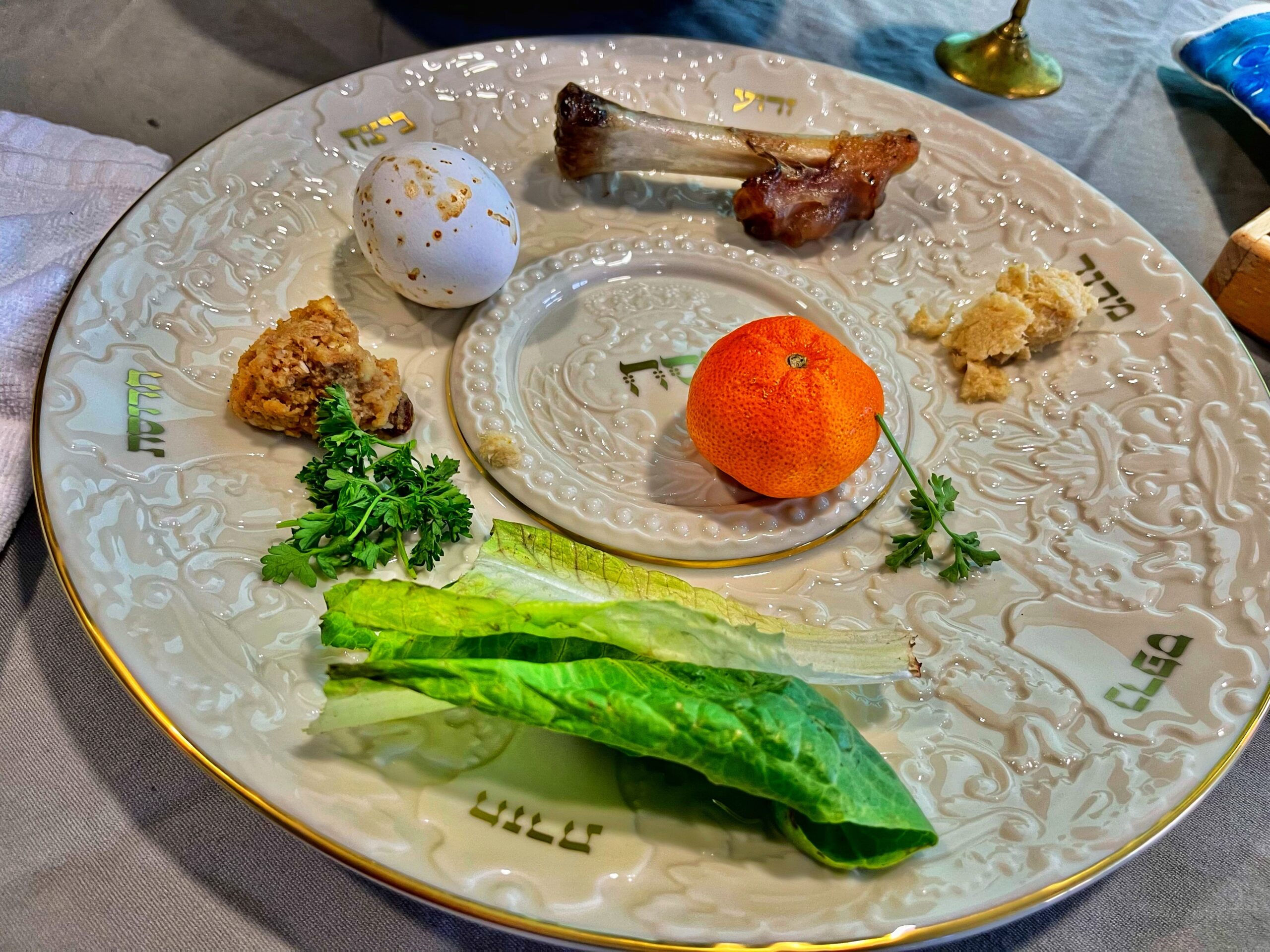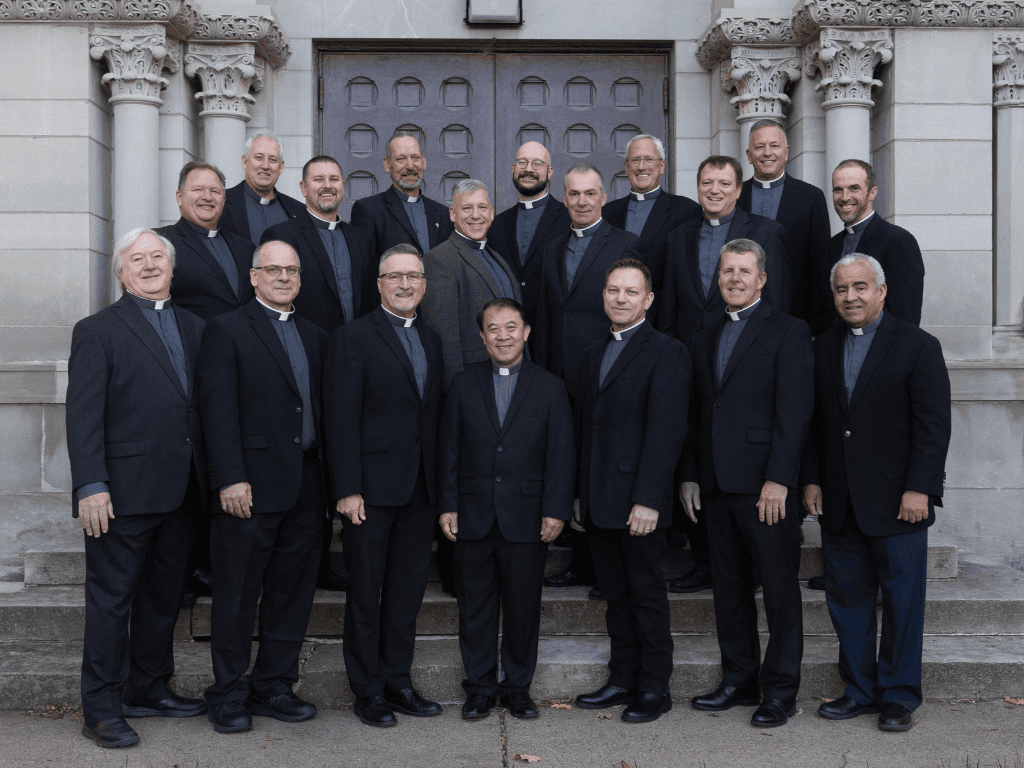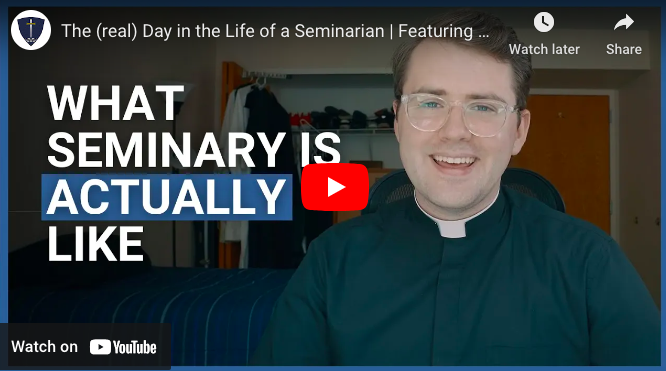Passover is one of the most celebrated holidays in the Jewish world, and it comes with centuries of tradition.
Jews around the world will celebrate the eight-day festival of Passover starting Wednesday night, April 5, with a meal called a Seder. The festive meal helps retell the story of the ancient Israelites as they escaped slavery in Egypt.

St. Thomas Theology Professor Rabbi Ryan Dulkin explored that storied tradition at a recent talk, Encountering Judaism: Passover 101. At the event, participants got to learn about the many symbolic meanings the holiday and its iconic meal holds for Jews past and present.
“Ultimately the Seder is a kind of cipher for liberation. You take the story of the ancestors and you commemorate that,” Dulkin said. “Passover is more of a moment to see yourself in the larger picture.”
Almost everything during a Seder meal is symbolic in some way, including the foods one eats and those displayed on the Seder plate. Lamb commemorates the passing over of Israelite houses during the plague of the death of the firstborn. Unleavened bread, known as matzah, commemorates the hasty exodus from Egypt (with no time for the bread to rise).
While some Seder traditions have stuck around for hundreds of years, some are more contemporary. Nowadays many Seder plates will feature an orange in the middle, which represents the inclusion of LGBTQIA+ individuals at the table.
Over the last decades, Seders have also been used to discuss the most pressing contemporary issues of the day, such as women’s rights and social justice, he said.
“The Seder has developed in contemporary practice into thematic sectors,” Dulkin said. “Not only are you commemorating the liberation from Egypt, but that becomes like a template for contemporary notions of liberation, such as worker’s rights, women’s rights.”
Other Passover customs for the holiday week include refraining from eating leavened bread, abstaining from work or driving, and partaking in a little spring cleaning, preparing homes for the holiday.
Encountering Judaism is a new initiative alongside Encountering Islam and Encountering Orthodoxy that the Theology Department is offering. The goal is to expand opportunities for students, faculty and staff to learn about different faiths and their traditions.







